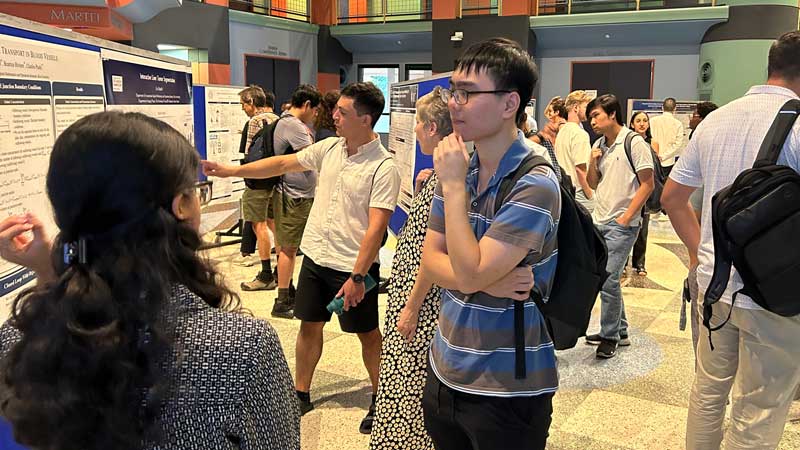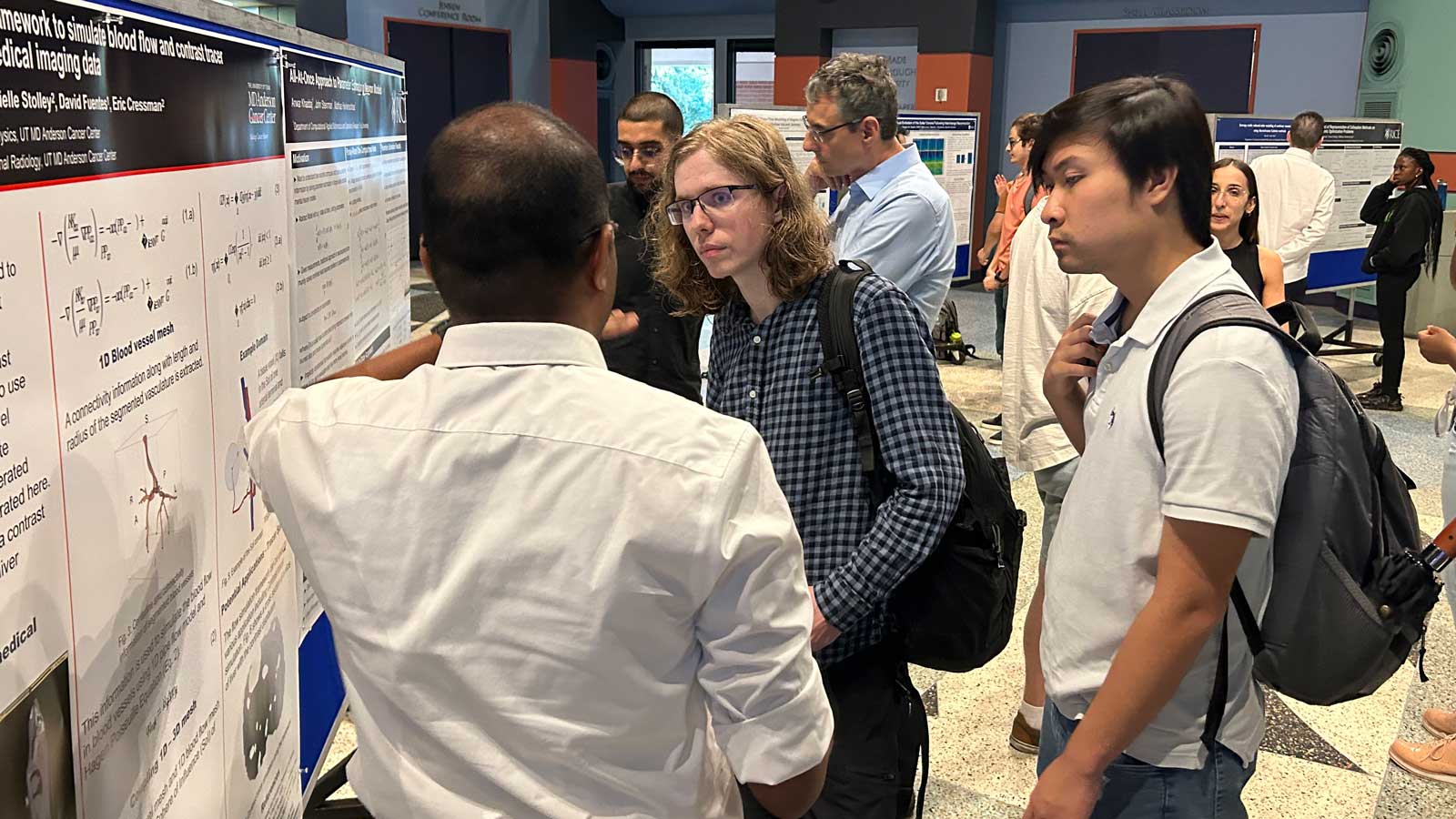Nineteen students and postdocs presented their research at the first workshop of the NSF-funded Research Training Group (RTG) for Numerical Mathematics and Scientific Computing (NASC) at Rice University.
The Department of Computational Applied Mathematics and Operations Research (CMOR) sponsored the event on Oct. 13. The workshop was made possible by a five-year, $2.3 million grant from the National Science Foundation. Its principal investigator is Beatrice Riviere, Noah Harding Chair and Professor of CMOR.
“Our goal is to train the next generation of scientists and engineers to advance NASC and its applications in many areas of engineering and science,” Riviere said. “Research presented at the workshop gives you some idea how inventive and hardworking our CMOR students are at Rice.”
Riviere’s co-principal investigators are Jesse Chan, assistant professor of CMOR, and Matthias Heinkenschloss, Noah Harding Chair and Professor of CMOR.
The NSF funding supports research conducted by undergraduates, graduate students and postdocs in CMOR. The participants reported their research findings in 20-minute talks.

Bilyana Tzolova, for instance, a fifth-year doctoral student advised by Riviere, presented her findings in a talk titled “Flow and Transport in the Liver Organ.” Her work focuses on modeling blood flow and solute transport, particularly involving chemotherapy drugs, within the liver and hepatic tumors.
“My research,” Tzolova said, “aims to enhance our understanding and, potentially, to facilitate development of more effective treatments for liver cancers.”
The RTG research is interdisciplinary, involving such other disciplines as electrical and computer engineering, mechanical engineering, physics and astronomy, and earth, environmental and planetary sciences. Rice teams also collaborate with researchers at MD Anderson Cancer Center and Baylor College of Medicine. View the titles and abstracts of all presentations.
“Another goal is to increase participation, especially of women and underrepresented minorities, in mathematical sciences,” Riviere said. “We will strengthen the preparation of researchers in computational and applied mathematics for careers in academia and industry.”
“It was great to see the exciting work done by our students, and the lively discussions among all participants, from students to faculty,” Heinkenschloss said. “We’re off to a great start.”
For more information, visit the RTG.

